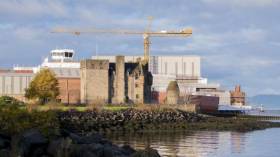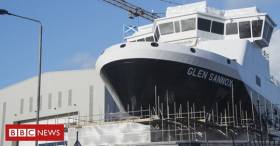Displaying items by tag: Nationalised
Scottish Shipyard on the Clyde Has Deadline for Nationalising Postponed
Scottish National Party ministers, The Herald writes, have extended the deadline for finding a buyer for the last civilian shipyard on the Clyde.
Finance Secretary Derek Mackay told MSPs the marketing of Ferguson Marine in Port Glasgow could take 50 per cent longer than anticipated.
The business, which employs 300 workers, went into administration last month after a £97m contract for two CalMac ferries ran two years late schedule and £100m over budget.
When Mr Mackay took the yard under public control on August 16, he said ministers would nationalise it unless there was a viable commercial offer within four weeks.
However in an update at Holyrood, he marketing it would now last another two to four weeks. He said the priority for ministers was safeguarding jobs and finishing the boats.
He said: “The Scottish Government will at all times remain open to discussions with any parties interested in securing a viable commercial future for the yard. But we will also explore the option of keeping the yard in public ownership, and how this might protect sustainable shipbuilding on the lower Clyde.”
For further reading click this link
Clydeside: Ferguson Shipyard Nationalised by Scottish Government
On the Clyde the Ferguson shipyard in Port Glasgow has been nationalised by the Scottish government.
Ministers reports BBC News, will now operate the yard under a management agreement with administrators, which will see the Scottish government buy the facility if no private buyer is found within four weeks.
Ferguson has been involved in a dispute with the Scottish government over the construction of two ferries for CalMac.
About 300 people work at the yard.
The deal means the yard will no longer be owned by industrialist Jim McColl, who could not persuade ministers to pay more than the £97m contract price for the disputed ferries.
The agreement also means work on the CalMac ferries, and other contracts, can continue while efforts to find a commercial buyer get under way.
Administrator Deloitte described the ferry contract as being "materially behind schedule and over budget".
More on this latest development can be read here





























































